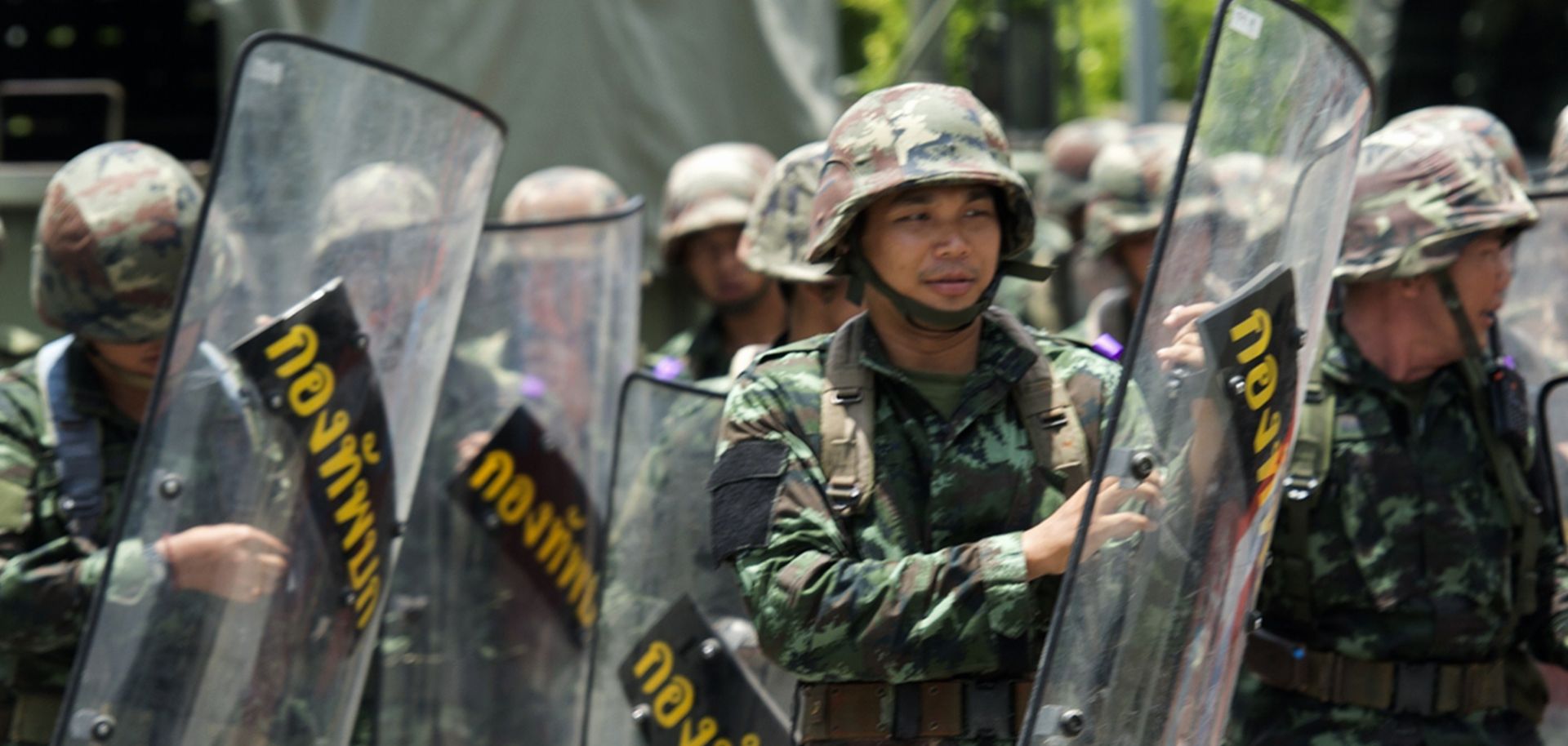ASSESSMENTS
Thai Junta Seeks a Silent Spring
Feb 4, 2015 | 13:48 GMT

(PORNCHAI KITTIWONGSAKUL/AFP/Getty Images)
Summary
Now in its eighth month of military rule, Thailand has begun 2015 amid an atmosphere of simmering discontent. This month will mark the beginning of what has been Thailand's annual spring protest season, a time when northern and northeastern rice farmers have proved more willing to leave their fallow fields to take their grievances to the streets of Bangkok. This year, however, the protest season is likely to be a period of relative calm. Since taking power in May, the military junta led by Gen. Prayuth Chan-ocha has imposed martial law, a move that has largely succeeded in preventing the opposition Red Shirts from mobilizing.
This pressure has also compelled the dominant opposition leader, exiled former Prime Minister Thaksin Shinawatra, to lie low for the foreseeable future. Most important, the junta appears firmly in control ahead of the impending royal succession process. This limits the risk that the looming death of long-reigning King Bhumibol Adulyadej will open up a competition for the throne that could further inflame Thailand's myriad internal political flashpoints. In spite of a relatively placid near term for Thailand, the long-term risks of domestic instability and economic uncertainty are still quite high.
Subscribe Now
SubscribeAlready have an account?
